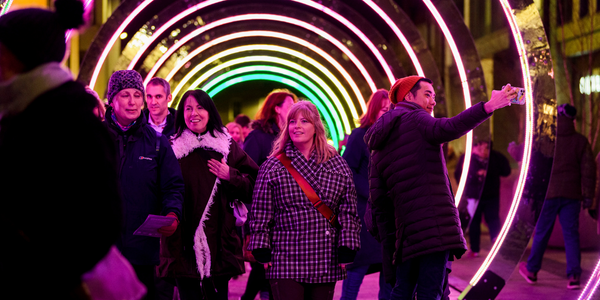A row has broken out between tourism industry leaders and city councillors over plans to introduce a ‘£2 per night, per room tourist tax’ on visitors to Edinburgh.
Plans have been put forward by Edinburgh City Council to raise up to £11m-a-year through a nightly ‘transient visitor levy’ (TVL) – in order to grow the tourism sector but manage its “impact”.
A public consultation is due to be launched by the council after research commissioned by Marketing Edinburgh – the destination promotion arm of the council – revealed both residents and visitors in favour.
In a survey carried out in July and August 92 per cent of tourists said that they would have visited Edinburgh even if a Tourist Levy of £1 per room, per night were in operation.
And 78 per cent said they would still come, even if the tax was as high as £4 per room per night; the plan would see Edinburgh follow in the footsteps of heavily touristed cities such as Paris and Rome.
The local authority is suggesting a year-round charge of either 2% or £2 per room, per night, for all types of accommodation – and the fee would be capped at seven days.
Council leader Adam McVey said: “Our work over the summer has focused on key stakeholders, particularly those in the hospitality trade, and we are continuing to engage with them on the details of what an Edinburgh scheme could reasonably look like and options for implementing it.
“Public consultation will allow for a wider and transparent debate over important details with everyone who has a view and we believe this approach is an important component of gaining trust and support for the scheme.”
John Donnelly, Chief Executive of Marketing Edinburgh, said: “Edinburgh is the jewel in Scotland’s crown and, for many, the gateway to the whole country – for the sake of our tourism industry, we cannot let it slip behind. Investment in Edinburgh’s visitor industry means the whole country benefits.”
However, the Scottish Tourism Alliance – the trade body representing the industry in Scotland – hit out at the plans, saying they risked damaging the tourism economy.
A spokesperson said: “The Scottish Tourism Alliance (STA) is disappointed that Edinburgh City Council has proceeded to launch a consultation on its plans to charge a tourist tax of £2 per room, per night, having had no formal or meaningful engagement with Scotland’s tourism industry to date.
“The Scottish Government has been consistent in its position that it has no plans for a tax on tourists and that the interests of the hospitality and tourism industry must be fully taken into account through consultation.
“The STA has requested that a formal stakeholder consultation takes place at national level, initiated by the Scottish Government. We reiterated our request at a recent meeting with Fiona Hyslop MSP, Cabinet Secretary for Culture, Tourism and External Affairs, and again by letter to the Cabinet Secretary this week.
“The time has come for an objective, well-informed national, rather than local debate following the conduct of independent research. We look forward to receiving more detail in response to our request from the Scottish Government.”
The council, subject to the approval of its Policy and Strategy Committee next Tuesday, will launch a public consultation before gearing up to submit finalised plans to Holyrood next year.
Under the plans, the charge would be in place all year round with guests staying in hotels, Airbnb properties and hostels all subject to the fee.
Previously, Scottish Government Ministers have sided with the industry saying there were no plans for a tax, but local authority members’ organisation COSLA has said it is in favour, placing central and local government at odds with one another. Business representative bodies also expressed concern over the plans, highlighting the impact of any new adminstrative burden on small business, in particular.
Rome introduced a tourist tax – “tassa di soggiorno” – in 2011, in order to pay for repairs and maintenance to the city; the rates – which vary from €4 to €7 per night depending on the star rating of the hotel – were doubled in 2014.
At the cheaper end of the scale accommodation charges in Paris range between 20 cents and €1.50-a-night while Berlin, Amsterdam and Cologne, a flat rate of 5% is added to room bills.
Edinburgh City Council, Highland Council, Aberdeen Council and COSLA all gave evidence on TVL to the Scottish Parliament on 13 September.
According to a paper prepared for next week’s committee meeting, Edinburgh City Council has taken ‘learnings’ from other European cities which invest the proceeds of levies into public services.
The paper said: “In Barcelona funds are allocated to the local authority to resize general services to meet to demand from tourist visits. In Antwerp, funds are allocated for clean streets, enhanced information services, and the maintenance of museums.”




